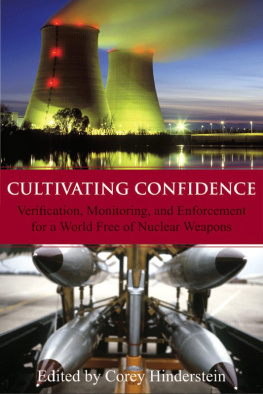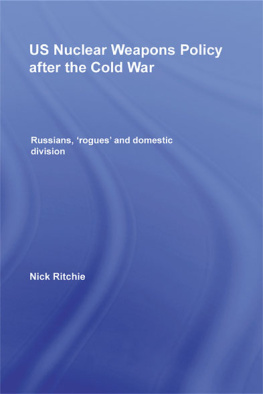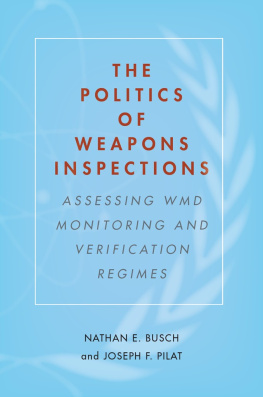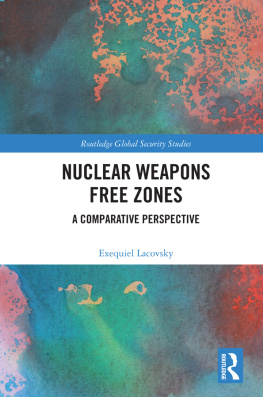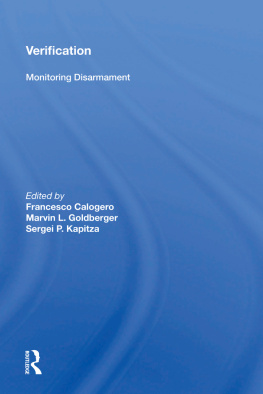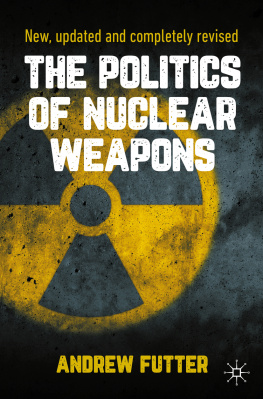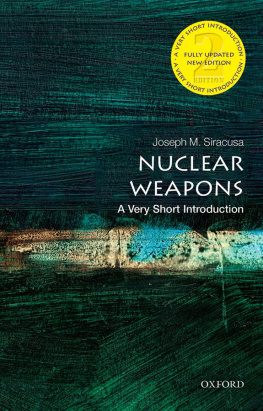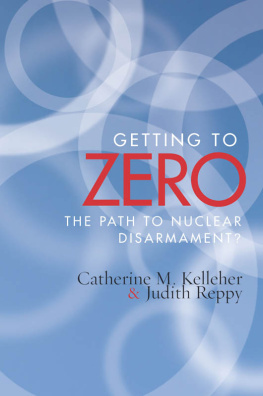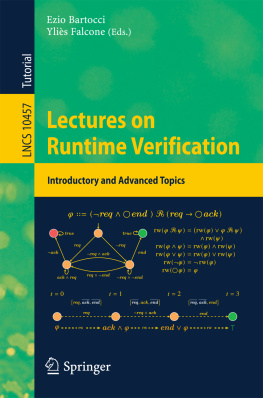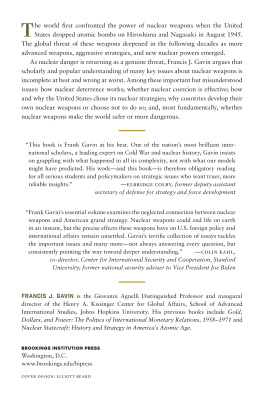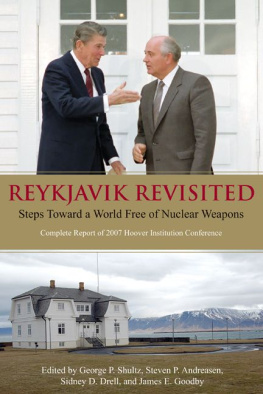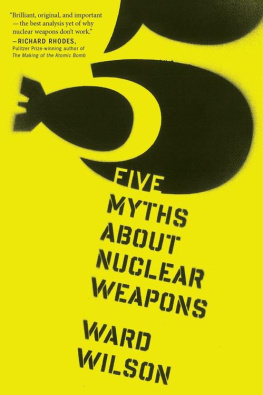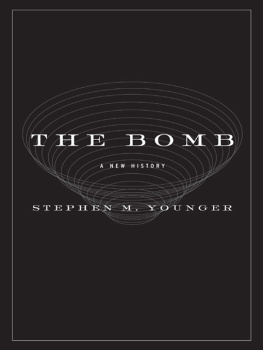The NUCLEAR THREAT INITIATIVE gratefully acknowledges the following foundationsfor their generous support of the Nuclear Security Project and this book:
THE CARNEGIE CORPORATION OF NEW YORK
THE JOHN D. AND CATHERINE T. MACARTHUR FOUNDATION
CULTIVATING CONFIDENCE
Verification, Monitoring, and Enforcement for a World Free of Nuclear Weapons
EDITED BY
Corey Hinderstein
a publication of the
NUCLEAR THREAT INITIATIVE
Washington, D.C.
The Nuclear Threat Initiative (NTI) is a non-profit organization with a mission to strengthen global security by reducing the risk of use and preventing the spread of nuclear, biological, and chemical weapons, and to work to build the trust, transparency, and security which are preconditions to the ultimate fulfillment of the Non-Proliferation Treatys goals and ambitions.
www.nti.org
A publication of the Nuclear Threat Initiative through the agency of the Hoover Institution Press.
Hoover Institution Press Publication No. 596 Hoover Institution at Leland Stanford Junior University, Stanford, California, 94305-6010
Copyright 2010 by the Nuclear Threat Initiative
All rights reserved. No part of this publication may be reproduced, stored in a retrieval system, or transmitted in any form or by any means, electronic, mechanical, photocopying, recording, or otherwise, without written permission of the publisher and copyright holders.
First printing 2010
17 16 15 14 13 12 11 10 9 8 7 6 5 4 3 2 1
Manufactured in the United States of America
Library of Congress Cataloging-in-Publication Data
Cultivating confidence : verification, monitoring, and enforcement for a world free of nuclear weapons / edited by Corey Hinderstein.
p. cm. (Hoover Institution Press publication ; no. 596)
Includes index.
A publication of the Nuclear Threat Initiative,
ISBN 978-0-8179-1205-5 (pbk. : alk. paper)
ISBN 978-0-8179-1206-2 (e-book)
1. Nuclear nonproliferation. 2. Nuclear arms control. I. Hinderstein, Corey. II. Nuclear Threat Initiative.
JZ5675.C85 2010
327.1'747dc22 2010031849
Contents
Corey Hinderstein
Edward Ifft
Harald Mller
Annette Schaper
James Fuller
Steinar Hibrten and Halvor Kippe
Everet H. Beckner
Steven P. Andreasen
Thomas E. Shea
Ralf Wirtz
Acknowledgments
The editor would like to express gratitude to the many people who provided support for this volume, offered comments on its contents, and assisted in its editing, proofreading, and design.
I would like to thank George Shultz, William Perry, Henry Kissinger, and Sam Nunn for providing leadership and guidance to the Nuclear Security Project, a project of the Nuclear Threat Initiative (NTI) in cooperation with the Hoover Institution. Very special thanks are due to the leadership of NTI, past and present, including President Joan Rohlfing, President Emeritus Charles B. Curtis, and Executive Vice President Deborah Rosenblum. I also would like to recognize Jayne Brady, Matthew Dupuis, Cathy Gwin, Laura Holgate, Carmen Mac-Dougall, Lynn Rusten, Bryan Wilkes, and Isabelle Williams, all of whom in their different capacities at NTI supported the production of this volume and the work that served as its foundation.
I would also like to acknowledge the project consultants and paper reviewers who took the time to assess the technical and substantive content of the papers and help the authors improve them. These include David Albright, Trevor Findlay, Richard Hooper, Sally Horn, Ray Juzaitis, Peter Sawczak, and Lawrence Scheinman.
Very special thanks are offered to James W. Tape who provided guidance, review, and input throughout the development of the project and provided significant new thinking that is included and acknowledged in the introduction of this book.
Special thanks are also offered to Jennifer Presley and her colleagues at Hoover Institution Press and Michael Bass and his team at Michael Bass Associates who produced the final version of the book.
Finally, I would like to acknowledge the support of the John D. and Catherine T. MacArthur Foundation and the Carnegie Corporation of New York for their support of the Nuclear Security Project and this book.
Introduction
COREY HINDERSTEIN
In 2007, former secretaries of state George Shultz and Henry Kissinger, along with former secretary of defense William Perry and former senator Sam Nunn launched the Nuclear Security Project (NSP), a major initiative to galvanize global action on urgent nuclear issues. The NSP, through a broad range of activities, including analytic studies, builds on the January 4, 2007, Wall Street Journal op-ed coauthored by the four senior statesmen, linking the vision of a world free of nuclear weapons with concrete threat reduction steps that can and should be taken to reduce urgent nuclear dangers and build support for reducing reliance on nuclear weapons, ultimately ending them as a threat to the world. Over the past several years, the work of the four statesmen has reframed global debate on nuclear issues and garnered international support and promising cooperation. The Nuclear Threat Initiative (NTI), in cooperation with the Hoover Institution, coordinates the work of the Nuclear Security Project along with that of its four principals.
As part of its work, the NSP seeks to add to existing analytic work defining major mileposts on the path to disarmament by addressing gaps in both conceptual frameworks and technical details. This work in turn can be provided to government leaders as a blueprint for action on policymaking, arms control, and diplomacy to reduce nuclear dangers. Verification, the subject of this book, is one such area where meaningful work needs to be done. Notably, the study identifies key technical, political, and diplomatic challenges associated with the verification, monitoring, and enforcement of a world free of nuclear weapons and provides potential solutions to these challenges.
This volume comprises nine chapters written in 2009, each addressing specific topics within the area of verification, monitoring, and enforcement. Unifying themes, common to all subjects, include principal challenges or stumbling blocks; current technical limitations on what can be done and, in light of these, how best to inform decisions regarding further investments in research and technical analysis; the technical constraints on developing the kind of system required ultimately to achieve a world free of nuclear weapons; and, finally, developing the architecture for a verification system. This study is not intended to be comprehensive; rather, it discusses many of the key issues that will need to be understood and managed in order to move along the path toward a world free of nuclear weapons.
As a final note of introduction, this study has defined verification as the process of determining whether parties to an agreement are in compliance with their obligations; monitoring as the function of collecting, analyzing, and reporting data on the activities of the parties to an agreement; and enforcement as the ability of the international community, collectively or individually, to impose negative consequences on a violator of international norms or commitments. One of the reasons for these distinctions is that verification systems cannot be evaluated separately from the measures that they are meant to verify. A system of verification is meant to give confidence to interested parties that a particular set of commitments is being upheld. Because of this, it is always necessary to separate the verification, monitoring, and enforcement goals and to recall the sometimes disparate purposes that they serve.

